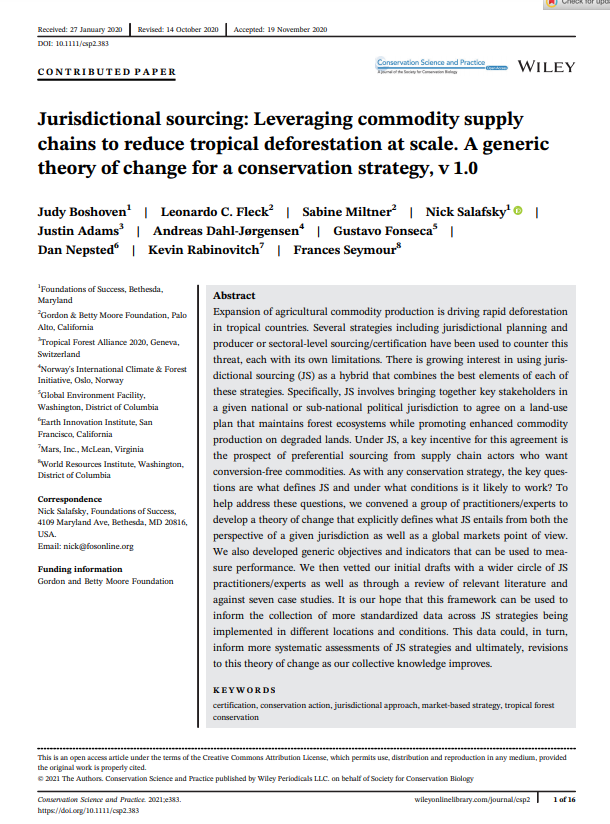Jurisdictional Sourcing: Leveraging Commodity Supply Chains to Reduce Tropical Deforestation at Scale. A Generic Theory of Change for a Conservation Strategy, v1.0
Expansion of agricultural commodity production is driving rapid deforestation in tropical countries. Several strategies including jurisdictional planning and producer or sectoral-level sourcing/certification have been used to counter this threat, each with its own limitations. There is growing interest in using jurisdictional sourcing (JS) as a hybrid that combines the best elements of each of these strategies. Specifically, JS involves bringing together key stakeholders in a given national or sub-national political jurisdiction to agree on a land-use plan that maintains forest ecosystems while promoting enhanced commodity production on degraded lands. As with any conservation strategy, the key questions are what defines JS and under what conditions is it likely to work?
To help address these questions, we convened a group of practitioners/experts to develop a theory of change that explicitly defines what JS entails from both the perspective of a given jurisdiction as well as a global markets point of view. We also developed generic objectives and indicators that can be used to measure performance. We then vetted our initial drafts with a wider circle of JS practitioners/experts as well as through a review of relevant literature and against seven case studies. It is our hope that this framework can be used to inform the collection of more standardized data across JS strategies being implemented in different locations and conditions.
